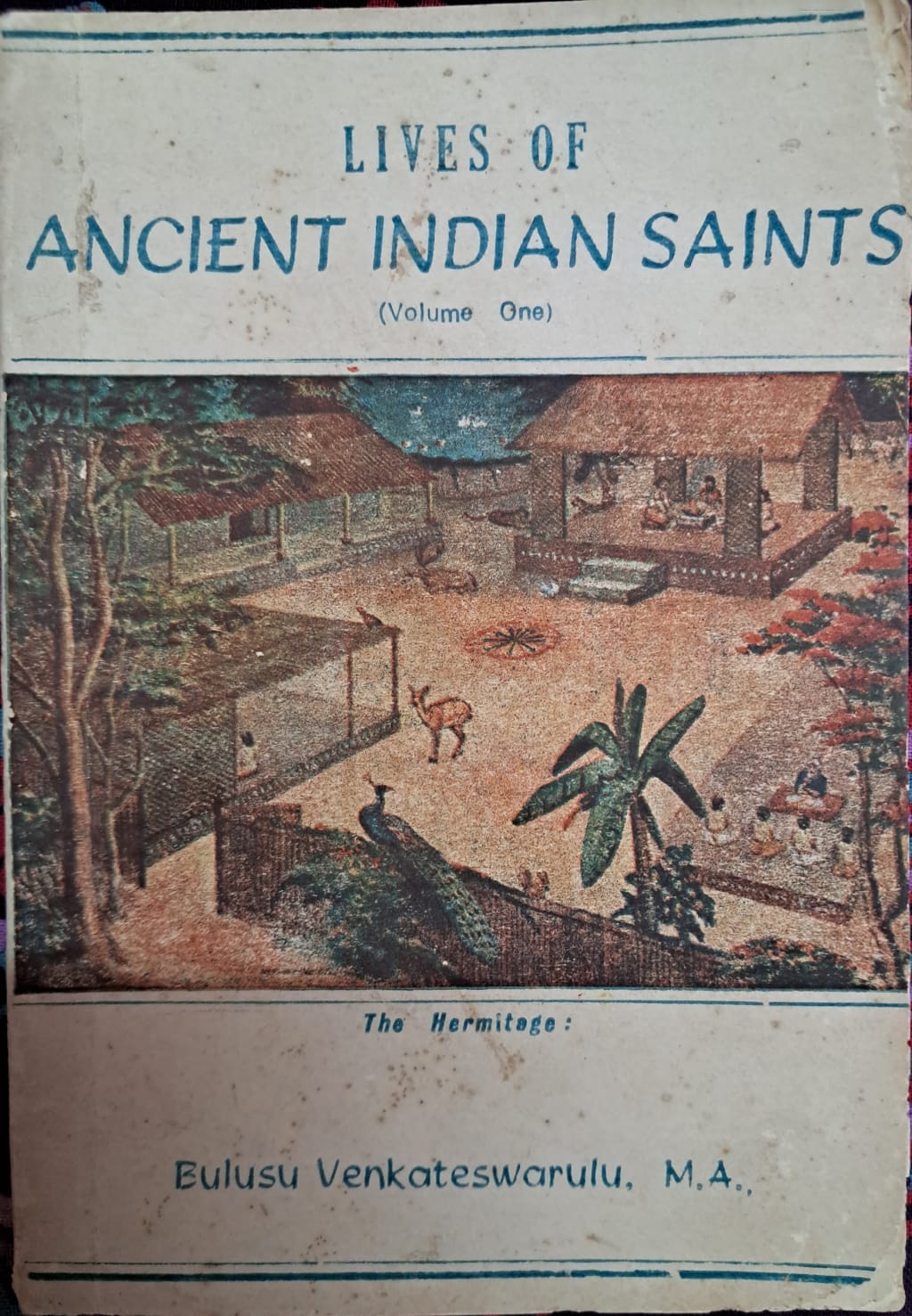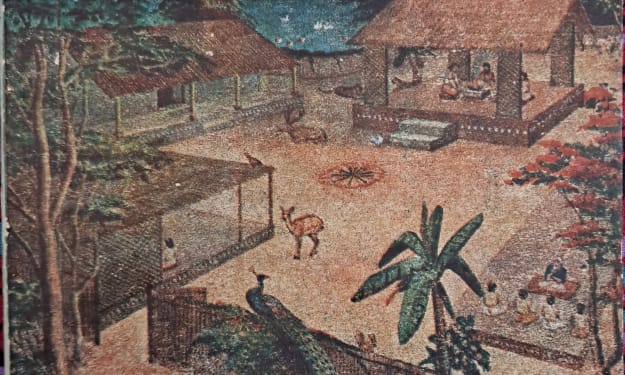Lives of Ancient Indian Saints
Bulusu Venkateswarulu, M.A.

Angiras - Penance
Angiras began severe penance. The physical body is made up of the five elements. It has the five senses. They have their attractions and influences. They are so powerful that man cannot understand his real self when he is under the influence of the senses. So, penance is no other than the control of the five senses and concentration of the mind. If one can control the body, he can control everything. If one cannot control the body and the senses, he is good for nothing. Worshippers of the spirit must be the controllers of their bodies and senses. The constant practice of controlling the body and the senses is called the Tapas. Penance is a vague term, but ' Tapas ' is a great term signifying a greater and deeper meaning. If you repeat the word Tap, Tap, Tap, you will hear the echo of it Pat, Pat, Pat. Tap means Tapas. Tapas is that which saves man from ' Pat ', fall. Man is the crown of God's creation. If he does not realise Godhead, he is sure to fall down from the celestial heights of being the Crown of God's creation. When one falls down from the glory of manhood, he will have to take millions of births before he could aspire to become a man again. So, Tapas saves man from falling.
By birth, Angiras was full of lustre. By penance, he became more lustrous. As he proceeded with his Tapas, he began to acquire powers and richer glory. Pride and arrogance were completely absent from him. As he tasted the sweetness of the Tapas, he began to soar higher and higher in its regions and never thought of coming back from that glorious position. What a great difference between selflessness and selfishness; between the plague of all attachment to the kith and kin, to the body and the senses and great detachment from these things. It is Tapas that makes one shine resplendent. It is Tapas that gives one salvation, redemption from the bondage and the cycle of birth, growth and death.
By his Tapas Angiras became a seer, a great seer, a Maharshi. He nkibecame the seer of many Vedic hymns and a great law-giver to the world.
Marriage
In those days, Kardama, one of the Prajapathis, progenitors of mankind performed great Tapas for ten thousand years on the shores of the great river Saraswati, and got the blessings of Lord Vishnu. By him, his wife Devahuti gave birth to nine daughters and one son. The daughters are Kala, Anasuya, Sraddha, Havirbhuvu, Gati, Kriya, Khyati, Arundhati and Santi. Kapila was the name of the son. In course of time, they grew up into very beautiful girls of marriageable age. They were like lotuses in the lake. They gave beauty, life and vigour to the house of Kardama.
Kardama thought of the Nava Brahmas, the nine creators, Marichi, Atri, Angiras, Pulastya, Pulahu, Kratu, Bhrigu, Vasistha, and Atharva. As he wished them to come, they came to his hermitage and awaited Kardama's command. He gave Kala to Marichi, Anasuya to Atri, Sraddha to Angiras, Havirbhuvu to Pulastya, Khyati to Bhrigu, Arundhathi to Vasistha and Santhi to Atharva in marriage which was celebrated on a grand scale and to which all gods and goddesses, saints and their wives came and blessed the couples.
Ideal Couple
Thus, marrying Sraddha, Angiras went to his hermitage to lead the life of an ideal householder. Their family life was no family life of the worldly people. It was a divine life, a life of celibacy, a life of sevvere austerities. They became conquerors of the senses Death dreaded them, lust ran away from them, desires disappeared from them. They became cent percent divine.
To lead the pure life of a great householder is part and parcel of Tapas. When the mind is conquered and kept centred on God, even if one is in the household life he is a Tapaswi. If one is in the Tapovan but keeps always his mind on wife and children, he is a householder full of attachment and the consequent ills. Remembering the injunctions of Brahma, the creator and father of mankind, Angiras blessed his wife Sraddha with seven sons and seven daughters. Tehy are Brihatkirti, Brihatjyoti, Brihat Brahma, Brihanmanasa, Brihanmantra, Brihat Bhanu and Brihaspati. The daughters are Bhanumati, Raka, Cinivali, Ekaneka, Archishmati, Havishmati and Mahamati. (tobe continued)
---------------





Comments
There are no comments for this story
Be the first to respond and start the conversation.